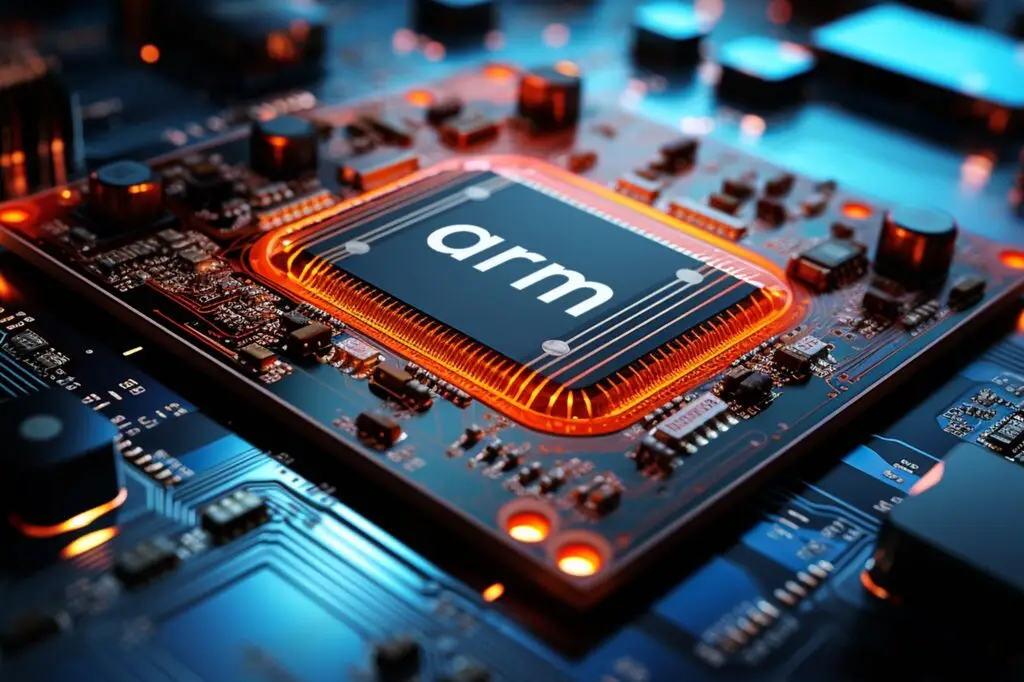
Arm Holdings Shakes Up the Chip Market with Meta Partnership and Bold New Strategy
Arm Holdings (ARM) is making waves in the semiconductor industry with a major strategic shift—transitioning from a licensing-only model to selling its own branded chips. The company’s stock surged 8.4% after reports surfaced that Meta Platforms (META) has signed on as one of the first customers for Arm’s upcoming AI-focused chip, expected to be unveiled this summer.
Arm’s Big Move: From Licensing to Manufacturing
For decades, Arm has been the behind-the-scenes powerhouse of the chip industry, licensing its architecture to companies like Apple, Nvidia, Qualcomm, and Intel while staying neutral in the competitive landscape. However, with AI and high-performance computing driving explosive demand for cutting-edge chips, Arm is stepping into the spotlight with its own product lineup.
Why This Deal Matters
- Meta’s $65 Billion AI Push: Meta is investing heavily in AI infrastructure, and Arm’s new chip could play a key role in advancing its machine learning capabilities.
- Arm’s Reinvention: By selling its own chips, Arm is shifting from being a neutral supplier to a direct competitor in the semiconductor space.
- Industry Disruption: This move challenges the status quo, potentially forcing major tech firms like Apple, Google, and Nvidia to reconsider their reliance on Arm’s designs.
Market Impact: A High-Stakes Bet on AI Chips
Arm’s move is a calculated risk—entering the highly competitive AI chip market means facing off against industry giants like Nvidia and AMD, both of whom have dominated the space. However, the partnership with Meta could signal a turning point for the company, opening doors for additional deals with other major players.
Bull Case: Why This Could Be Huge for Arm
- New Revenue Streams: Selling its own chips expands Arm’s business beyond licensing, unlocking new profit potential.
- AI Boom Potential: With AI chip demand skyrocketing, Arm’s entry into this space positions it for massive growth.
- Investor Confidence: The stock’s sharp rise suggests optimism around Arm’s ability to execute this strategy successfully.
- More Big Tech Partnerships? If Meta is onboard, other companies could follow, further strengthening Arm’s market position.
Bear Case: The Risks Arm Faces
- Losing Key Customers: Companies that once licensed Arm’s technology may see it as a competitor and look for alternatives.
- Costly Gamble: Developing, producing, and selling chips is expensive—if this move flops, it could hurt Arm financially.
- Fierce Competition: Nvidia, AMD, and Intel already dominate AI chips—can Arm carve out a meaningful share?
- Market Disruption Backfire: If tech giants shift away from Arm’s architecture due to this move, its core licensing business could take a hit.
What’s Next?
The success of Arm’s first branded chip will depend on performance, adoption, and strategic execution. If it delivers a powerful AI solution that meets the demands of companies like Meta, it could redefine its role in the semiconductor industry and drive further innovation.
With the AI revolution accelerating, Arm’s bold move could mark the beginning of a new era in chip technology—or it could serve as a cautionary tale of a company straying too far from its strengths. Either way, the industry is watching closely.


